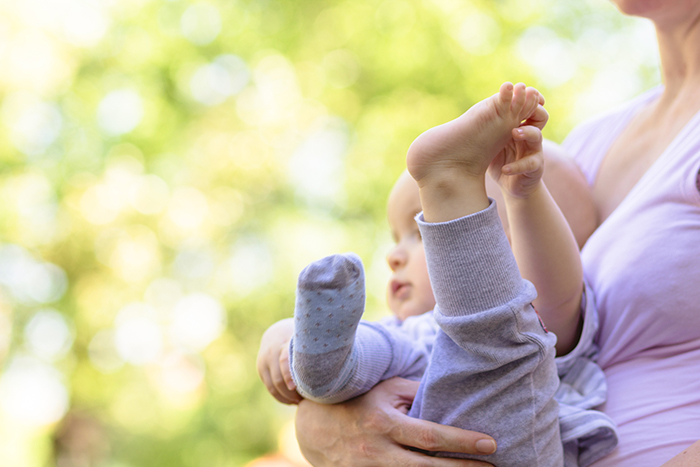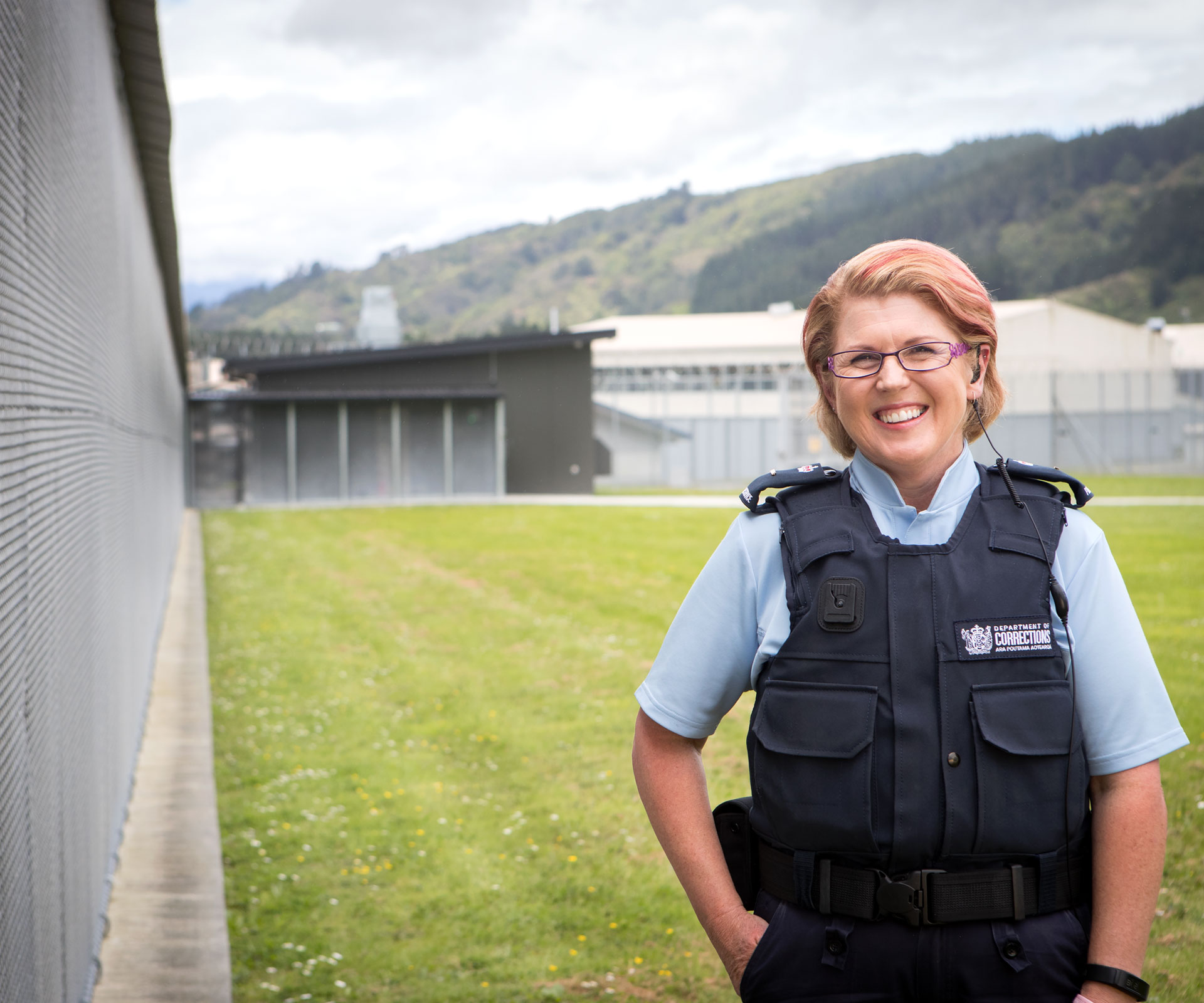Being sent to prison is a punishment, but thanks to the work of dedicated Corrections officers and community volunteers, incarceration is also an opportunity for many inmates to transform their life.
This is the first in a series of stories about women who work and volunteer within the New Zealand corrections system.
Once a month, Stacey Shortall and a band of fellow female lawyers pay a visit to the Auckland Region Women’s Corrections Facility (ARWC) in Wiri, to talk to imprisoned mothers.
They all give their time free of charge to sit down and listen to the prisoners, to help them maintain, or repair, relationships with their children on the outside.
It’s called the Mothers Project, and was created by Stacey – one of the country’s leading lawyers – after she was part of a similar altruistic programme in New York.
“If you can keep a meaningful relationship between a mum and her children while she’s inside, it creates a more realistic environment when she’s released,” Stacey says.
While working as a top Wall Street litigator, Stacey became involved in pro bono work, especially with vulnerable women and children. That led to her volunteering for a decade at a Manhattan prison on the Incarcerated Mothers Program, helping women understand their rights and obligations to their children.
Returning home to New Zealand, she looked at what women lawyers here were doing to give back, and initiated a trial for the Mothers Project at ARWC, encouraging others at her firm, MinterEllisonRuddWatts, to give their time too.
The project has now been running for more than two years, and this year will be replicated at Arohata Prison. Stacey’s motivation to grow the project is simple.
“I want to help the children,” says the mother of four.
“Children aren’t responsible for their mother’s offending. They are just another victim. These women want their kids to know that even though they’re in a prison, they haven’t stopped thinking about them and wanting what’s best for them. If we are just one mechanism of how those kids are reminded of that, then that’s the impact we want to have.
“Some people have quite tough views around women inside. But I think the great equaliser is that many of these women have children, and I think everyone in New Zealand wants what’s best for every child.
“At any given time, there are 20,000 kids with a parent incarcerated in New Zealand. If we can keep those families strong, we get a stronger community. And stronger communities make a stronger country.”
The 30 or so lawyers who volunteer for the Mothers Project become a conduit between mothers and their children, or their children’s caregivers. They help the women to understand their rights, to comprehend legal paperwork, or they ask questions on their behalf.
“We make a lot of calls, and most of the questions are quite simple. They know their child is in CYFs care, but they just want to know how the child is doing. Are they going to school, are they playing sport, do they have friends?” Stacey says.
“They want to understand why things have happened. If stuff keeps happening to you, you quickly become powerless and you feel angered by it. Sometimes a lot of the best work we do in the Mothers Project is unravelling a complex ball of string and explaining what started this, and why it’s happened.”
It’s not only mothers and children who’ve profited from this project, Stacey has discovered. It has enabled women lawyers like herself, who work in a commercial corporate environment, to spend time with women they would probably never have encountered.
“It’s given us a different perspective on the lives of other women; how some land where they do, and the challenges they face,” says Stacey, who has acted on Canterbury and Wellington earthquake issues and represented Pike River directors and officers following the 2010 mine tragedy.
Having worked with more than 100 women at Wiri, Stacey measures the project’s success by “the fact they come back to see us every month – it’s a sign that there’s a genuine desire to know what’s going on with their children and to be involved with that.
“In New York, I saw the idea that maintaining meaningful relationships had a correlation with the likelihood of a woman reoffending. If you really want a woman to think differently about how she is going to live post-release, then having a strong connection to her children, having her children become part of that group who will say to her, ‘I need you to be good here, Mum,’ can be very powerful.
“Children can be the stabilising force.”

The route to an offence-free release
Current programmes in our prisons are already teaching new skills, empathy and responsibility and showing inmates that they have choices in life.
With New Zealand’s female prisoner muster hitting an all-time high of 700, the opportunities for change within our prisons must grow too.
“The vast majority of women in our prisons are the most put-upon, beaten, humiliated and degraded people in the country. We want to help those who have been disempowered for most of their lives, so they know they have choices,” the former Corrections Minister, Judith Collins, said.
The concept behind the Mothers and Babies Units is to help women prisoners “make positive changes and stay offence-free when they are released”. The units, in all three of the country’s women’s prisons – Auckland Region Women’s Corrections Facility (ARWC), Arohata, and Christchurch Women’s – allow eligible mothers to keep their children with them until the age of two.
Mothers who are drug-free and have had no serious misconducts live in self-care units with other mothers and babies, cooking and cleaning for themselves. They have access to services they would have in the community – antenatal classes, midwives, Plunket and parenting support. The units help inmates bond with their children and build relationships with other mothers.
Encouraging empathy, trust, and a sense of responsibility is the motivation behind the Puppies in Prisons programme, which has been running at ARWC in Wiri since 2009. Women inmates train mobility assistance dogs that eventually are assigned to help people with disabilities gain independence.
“A woman prisoner who had been connected to gangs told me what she really got out of it was learning to help someone else,” Judith Collins said. “She felt more confidence, purpose and a sense of empowerment. How encouraging that is, to say to someone who has always been on the receiving end of help, ‘Actually, you can help someone else.’”
Changes were introduced last year to help female inmates at risk of family violence on the outside. At-risk women are identified early in their prison sentences so they can attend courses and have support organised before they leave prison. Helping them ultimately helps their children. Funding has been allocated this year to introduce more Brainwave Trust work into prisons, to explain how children’s brains develop.
Mental health has also become a major issue for Corrections, with recognition that many prisoners have diagnosed, or undiagnosed, mental health issues that could be addressed – which may help prevent them reoffending. There has been a $14.2 million funding increase for the next two years to buy in services outside those the District Health Boards already provide.
“It takes a long time, but we are making changes,” Judith Collins said. “Particularly for women prisoners – getting them into a position so that when they leave, they know they have options in life. That they don’t have to go back to what they came from, if going back is a bad choice for them.”
Words: Suzanne McFadden
For more from The Australian Women’s Weekly, see the February issue. Follow us on Facebook or Instagram.


